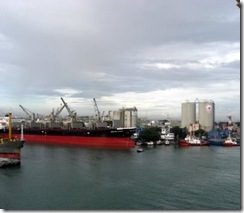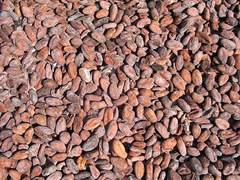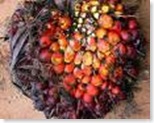
The Indonesia Minister of Energy and Mineral Resources (ESDM), Purnomo Yusgiantoro announced the operating of the first bio-diesel power electricity with capacity 10 MW in Bagan Besar, Dumai, Riau Province.
This power electricity is owned by Indonesia Electricity Company (PLN) and using fuel diesel (PLTD) as the energi before, but then the Germany company NMBH (Neue Halberstadt Maschinenbau GmbH), installed the PLTD converter so posiblle to utilize the energy of pure vegetable oil derived from Crude Palm Oil (CPO).
Utilization of the converter as a tool to divert the use of fossil energy (fuel diesel) to renewable energi in Dumai PLTD is the first in Asia. The success collaborative is the effort between the Directorate General of Electricity and Energy Utilization (DG LPE), the Ministry of ESDM, with the Neue Halberstadt Maschinenbau GmbH (NMBH) in the year 2007.
In that year NMBH - company which develop and application of fuel vegetable technology - begin installing the converter in PLTD Bagan Besar, Dumai. Now this is the time to campaign the utilization of bio-fuel in Indonesia.
"We know the world price of Crude oil is decline significantly. Likewise with the world price of CPO, therefore I request with exceeds of the CPO production is used for bio-fuel," said Purnomo Yusgiantoro.
The government itself had issued the ESDM Rule No. 32/2008 regarding the provision, utilization and administration commerce fuel vegetable (BBN) as an alternative fuel. One of the contents of the regulations is setting the minimum staging obligation of using the fuel in the transport sector, industrial, commercial and generating electricity.
Hence, Purnomo also ask PT PLN (Persero) and PT Pertamina (Persero) to maximize absorption of CPO production for both power electricity and used as fuel by Pertamina.


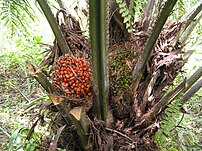

![image_thumb[2]](http://lh4.ggpht.com/hutasoit/SQFf8wE7O0I/AAAAAAAAAjw/8usEYDKJuXM/image_thumb%5B2%5D_thumb%5B2%5D.png)

![Reblog this post [with Zemanta]](http://img.zemanta.com/reblog_e.png?x-id=2fcfefa1-b877-4ffa-80e4-df83ef0c76fb)

![Reblog this post [with Zemanta]](http://img.zemanta.com/reblog_e.png?x-id=05305888-d8d4-4e36-bd32-b80f4618ddeb)
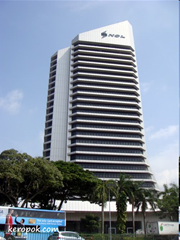

![Reblog this post [with Zemanta]](http://img.zemanta.com/reblog_e.png?x-id=27c57b06-64ba-45b9-8c2b-09363565b869)
